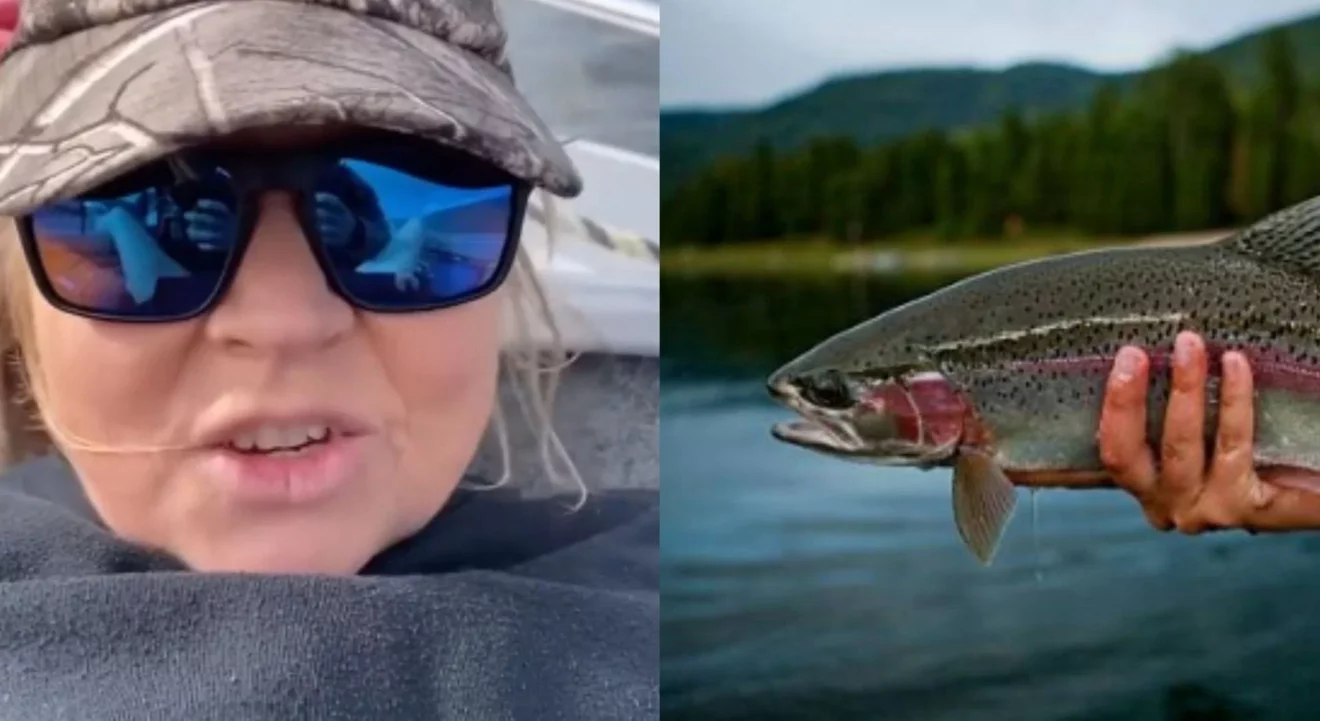Now Reading: Trout Lady video scandal explained for Aussies
-
01
Trout Lady video scandal explained for Aussies
Trout Lady video scandal explained for Aussies

There are many popular videos on the internet, but the Trout Lady video has caused a lot of anger in Australia. What started as a horrific video posted in the dark corners of the web suddenly became national news, court cases and a lot of public debate. In this article, we talk about the Trout Lady video, the people who were involved, the legal effects, and what it means for Australians in the future.
A short summary of the Trout Lady video
The Trout Lady video, which is often called “Tassie Trout Lady” or “1 Girl 1 Trout” online, came out in early 2023 and rapidly became viral on sites like Reddit, Threads and TikTok. The video showed a woman on a boat perform an sexual activity with a live brown trout and her partner have filmed it.
There was a lot of outrage against the video because it showed animal cruelty, sexual content and the fact that both people seemed to agree to it. In Australia, this kind of content is against the law and sharing it is a very serious crime.
Who are the people involved in the Trout Lady scandal?
The video officially named two people as being involved:
- Catherine June Lee, a 58-year-old woman from Howden, Tasmania.
- Ashley David Hallam, 55, her partner and the one who is said to have filmed the video.
The event get’s viral February 2022 and January 2023. Both Lee and Hallam were charged under Tasmania’s Classification (Publications, Films, and Computer Games) Enforcement Act, which makes it illegal to own, make or share material connected to bestiality.
Legal actions and court proceedings
In August 2024, the Trout Lady case went to Hobart Magistrates Court, where Lee and Hallam both showed up for the first time. At that time, neither of them entered a plea and requested a postponement of the case.
Later, the court faced a difficult question: should the graphic content be used as evidence? The defence raised concerns about balancing the public interest with the disturbing and invasive nature of the footage
As of the beginning of 2025, the following changes had taken place:
- There were no more public charges against Catherine Lee and the ones that were dropped were not recorded.
- Ashley Hallam is still being prosecuted and his case is still going on. There are still arguments about how the evidence may be used in court.
These occurrences show how serious Australia is about animal-related content and how difficult it is to deal with when these kinds of situations become viral.
Why the video went viral: Social media’s role
Despite the Trout Lady video’s blatant insults and legal violations, it quickly gained online attention. At first, it was posted to forums for adults, but later it spread to:
- Reddit received thousands of comments on the video before its removal
- TikTok, where memes and reaction videos became popular with hashtags like #troutlady and #tassietroutlady
- On Threads and Twitter, users could argue, make jokes and criticise each other.
This massive circulation brought up old conversations in Australia about online ethics, platform responsibility and how quickly bad content can spread before the police do anything.
The Australian public’s reaction
The video naturally startled and sickened Australians. There was a lot of criticism on social media and sites like r/tasmania. Many people said the video was
- “An insult to basic decency”
- “Very upsetting and traumatic”
- “A failure of our systems to stop animal abuse and revenge porn”
Some people were worried about how this would affect Tasmania’s image, especially because it is known for its beautiful wildlife and ecotourism. Others asked for tougher legislation to protect animals and stop the digital circulation of pornographic content.
Broader issues raised by the Trout Lady video
The event has sparked major national conversations, in addition to being shocking. These include:
1. Animal abuse and the legal protection
The use of a live animal angered people greatly. Tasmania’s and Australia’s animal welfare regulations are strong, but this case revealed their lack of enforcement or awareness.
2. Viral media and moral limits
The video is a perfect example of shock content that goes viral. Once content such as this emerges, it becomes nearly impossible to halt, even if you request its removal. This situation raises significant concerns regarding digital ethics and censorship.
3. Consent, privacy and criminal responsibility
Although the adults in the video consented to it, Australian law deemed it illegal. This case also makes it hard to tell the difference between voluntary conduct and public sharing, which often happens without consent or intention.
What Australians should know and do
If you’re an Australian and you saw this story or the video itself, here are some things to keep in mind:
1. Don’t ever share anything illegal
Under Australian law, it is against the law to own or share bestiality content. Sharing memes or screenshots about it can even get you in trouble with the law.
2. Report instead of repost
If you encounter this type of footage, please promptly inform the appropriate platform. If something bad happens, call eSafety or the police.
3. Talk to your kids and teens
If you’re a parent, this is a great chance to talk to your kids about being responsible online, the risks of viral content and how important it is to be honest online.
Conclusion
The Trout Lady video may have startled and upset many Australians, but it also gives them a chance to think about what happened. It reminds us of how rapidly information can travel, how important it is to protect animals better and how important it is to act ethically online.



























